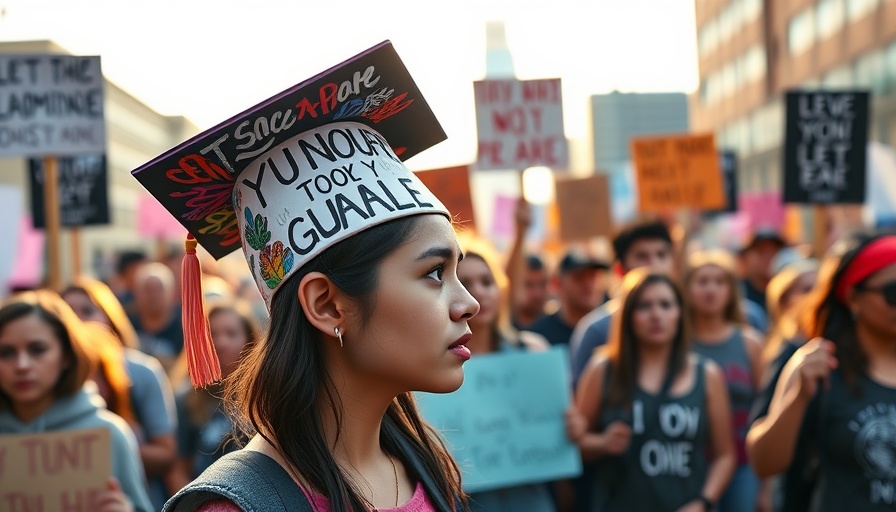
The New Tuition Rules: A Shift in Texas Education Policy
In a significant policy change, Texas lawmakers have implemented new regulations requiring public colleges to charge undocumented students higher tuition rates. This decision marks a departure from past practices where certain fees were mitigated in recognition of the challenges faced by these students.
Understanding the Implications for Undocumented Students
Historically, Texas has had a more progressive stance regarding undocumented students attending public institutions. For many years, the Texas Dream Act allowed these individuals to pay in-state tuition, thus opening doors to higher education. However, recent legislation reverses this trend by mandating higher rates, effectively placing financial burdens on students who already face substantial barriers.
This change could dissuade many undocumented students from pursuing higher education due to the increased financial strain. Rising tuition costs particularly affect students from lower-income families, who may already struggle to afford basic necessities.
The Broader Social Context
From a broader perspective, this policy shift places Texas in the midst of a national debate on immigration and education for undocumented youth. As states differ in their approaches, the new regulation aligns Texas with a more exclusionary pathway, pushing the question: Does financial access equate to educational equity?
Public sentiment has often favored pathways for undocumented students to contribute positively to society. Yet, this latest legislative move could reflect a shifting narrative within Texas — from inclusivity to potential alienation.
Examining Counterarguments
Proponents of the new tuition policy argue that equitable treatment is necessary for all students, irrespective of immigration status. They emphasize that taxpayers should not subsidize the education of non-residents. However, critics highlight the potential lost opportunities for skilled individuals who could become substantial contributors to the state’s economy and workforce.
Furthermore, studies suggest that access to education promotes social mobility. Excluding a segment of the population from affordable education may subsequently lead to larger societal issues, including increased economic disparity.
A Local Reaction: Voices from Texas
The reaction to the new rules has varied across communities. In cities such as San Antonio, where the Latino population plays a vital role in the local culture and economy, many voices have emerged advocating against this decision. Activists, educators, and families have expressed their concerns, fearing that a significant number of students may retreat from their educational ambitions.
“This change feels like a step backward for our community,” states Maria, a local school counselor. “We want to uplift our students, not discourage them.” This sentiment is echoed across the state, suggesting a strong resistance to the perceived injustices introduced by the new tuition rates.
Potential Future Solutions
As the consequences of this policy unfold, discussions are likely to arise regarding potential solutions. Advocacy groups may push for new legislation that supports educational equity for all students, regardless of immigration status. Collaborative efforts from communities, educational institutions, and lawmakers could pave the way for future reforms aimed at reversing or amending this law.
Additionally, universities may find inventive funding solutions like private scholarships specifically designed for undocumented students, which could help mitigate the financial impact of higher tuition.
Conclusion: The Way Forward
The implementation of higher tuition for undocumented students in Texas raises pressing questions about equity, access, and the long-term implications for both the individuals affected and the state as a whole. As communities respond and adjust to this significant change in policy, the call for sustained dialogue among stakeholders remains crucial for finding pathways that honor and support all students.
 Add Row
Add Row  Add
Add 




Write A Comment